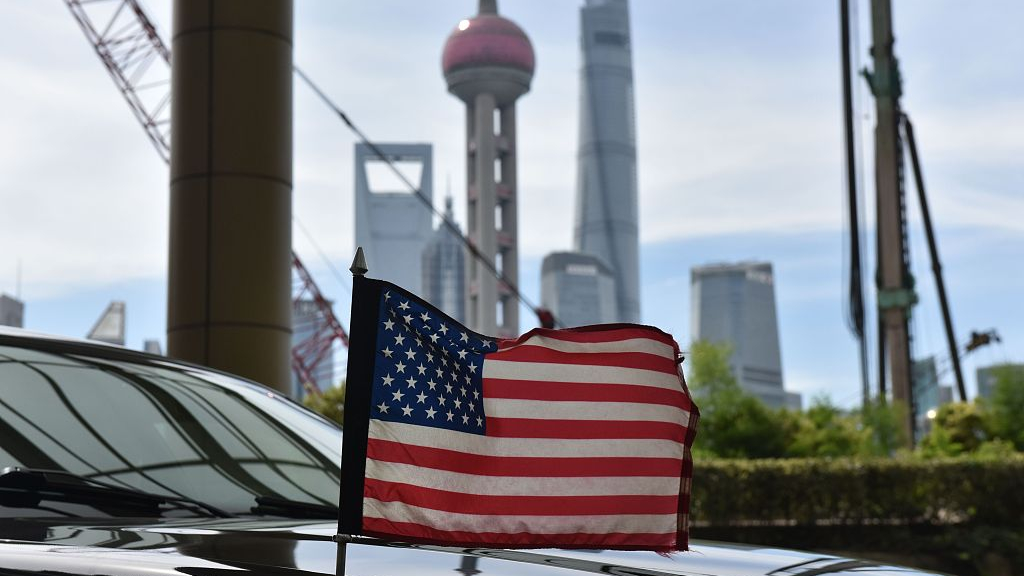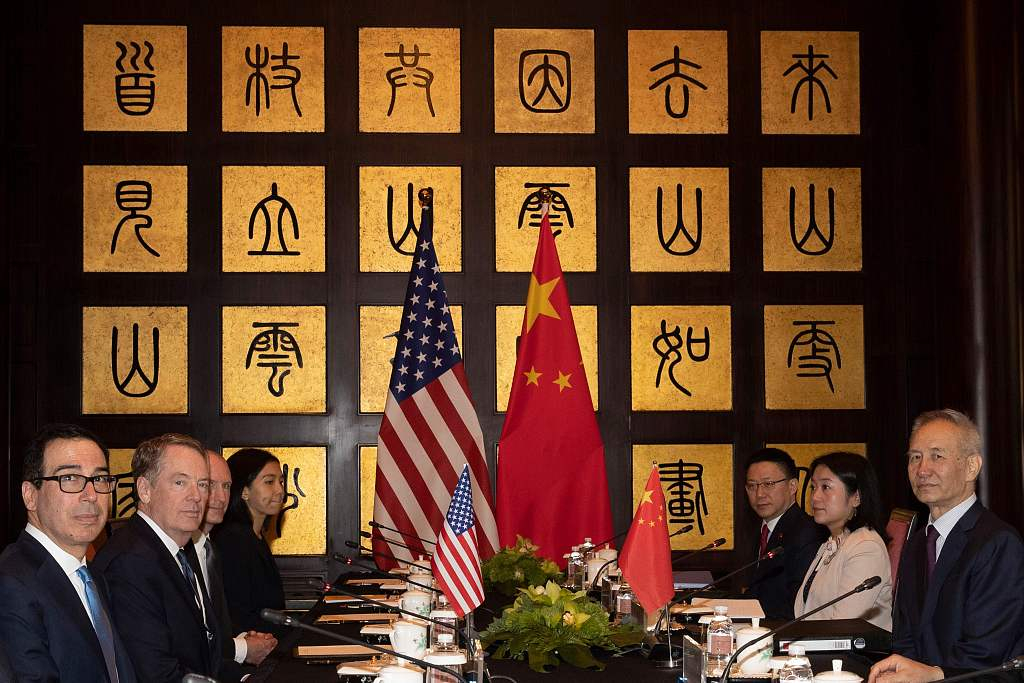

Editor's note: Jia Wenshan, PhD, is a professor at Chapman University and a research fellow at the National Academy for Development and Strategies, Renmin University of China. The article reflects the author's opinions, and not necessarily the views of CGTN.
The 12th round of U.S.-China trade negotiations took place in Shanghai, China on July 30 and 31, 2019, after a pause of more than two and a half months since the 11th round on May 9, 2019. This had been made possible through a Xi-Trump meeting at the G20 Summit in Osaka, Japan on June 29, 2019. Unsurprisingly, the anticipations for a win-win outcome of the marathon-like trade negotiations between the U.S. and China have been damped down and dashed again by President Trump's tweets and elevated tariffs. Americans and Chinese of goodwill, as well as the global community, feel disappointed again. The global community has fallen back into a deep valley of anxiety and despair from the peak of high hopes.
Mastery of contradictions
Who could have imagined that U.S. President Donald Trump who himself had sent the U.S. trade negotiation delegation to Shanghai tweeted against the possibility of a successful agreement during the 12th round and announced that he would raise ten percent tariffs on 300 billion U.S. dollars in Chinese goods exported into the U.S. The Dow Jones fell more than 300 points after this announcement. This has been a repeated pattern since the first round in April 2018, at which he seems to have been both against a win-win deal and apparently for a win-win deal. While a majority of people feel puzzled, confused and frustrated about such a pattern of unpresidential behavior of the U.S. president, as a people watcher, I find the president a master of manipulation (or integration) of contradictions, a master of complex and strategic thinking, and a master of camouflage. In my observations, he has the following three goals of three different levels in mind in handling U.S.-China trade affairs:
1. His first goal is to keep the U.S.-China trade negotiations going as long as possible, just like a dairy farmer needs to keep his milk cow around and alive as long as possible and milks it whenever and wherever. Negotiations, by the very nature of the very term "negotiations" defined in the contemporary era, are typically inclined for a win-win result which he does not really want to happen in the deep bottom of his heart. Tariffs have been his weapon to make the negotiations zero-sum where his counterpart would be scared into submission to the U.S. demands. However, a win-win result has always been presented as a placebo bait which he would only allow his counterpart to see but never let his counterpart reach.
2. His repeated scare tactic and fear appeal most probably constitute a mind game which might have been intended to gradually dissipate the high spirit of China, namely Chinese people's self-confidence about its model of development, its own ideology, its own political institutions and its own culture. It would also be intended to dissipate the global community's growing respect and emulation of China as a rising global power and as a global center of attention. Such dissipation might have been intended to accumulatively and ultimately arrest China's rise at which cost Trump's "America First" goal could be met.
3. Finally, he has been trying very hard, albeit clumsily at times, to please both political moderates and political hardliners in the U.S. so that he would maximize his vote gain to win his second presidential term. A former Democrat, he won his first presidential term by playing the populism card and fanning the alt-right groups' hatred of minorities in the U.S. and China. If he reaches a win-win deal, American moderates would be happy at the displeasure of American hardliners. If he uses tariffs against China as a trade war weapon, he would keep the votes of the populists. So, as a result, he has been alternating between trade negotiations and a trade war with China for the past 16 months and possibly will do so for a relatively long time to come until he wins (if he wins) his second presidential term.

Chinese Vice Premier Liu He (R) with United States Trade Representative Robert Lighthizer (2nd L) and Treasury Secretary Steve Mnuchin (L) before the start of talks at the Xijiao Conference Center in Shanghai, China, July 31, 2019. /VCG Photo
"Holding on means letting go"
President Trump has been experimenting to reach all the above three goals at the same time. So he has been juggling back and forth only to suffer from more and more loss of both his own credibility and the credibility of the U.S. as a nation. Instead of reaching the goals above, he may lose them all eventually.
The Old West cowboy style of the zero-sum game which President Trump inherits from his great German grandfather in the Westward Movement has never died out in the U.S. and might still work in the world of Manhattan real estate business, but it has been definitely fading away both nationally and globally. President Trump is strongly advised to be aware of this value change.
Cooperation and collaboration for a win-win result as a new global and universal value is no longer seen as a sign of weakness; instead, it is increasingly seen as a symbol of wisdom and strength. If President Trump resists the urge to be combative and embraces this new logic and applies it in handling affairs both domestic and global, such as the U.S.-China trade issues, he would not only win his second term as president of the U.S., he would also in much likelihood achieve his dream of "America First."
(If you want to contribute and have specific expertise, please contact us at opinions@cgtn.com.)

Copyright © 2018 CGTN. Beijing ICP prepared NO.16065310-3
Copyright © 2018 CGTN. Beijing ICP prepared NO.16065310-3